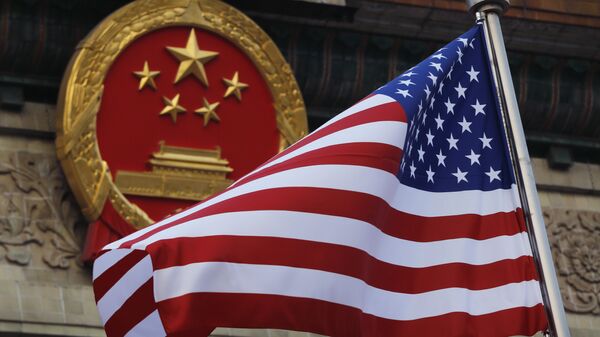Economist and leading expert from the Institute of Contemporary Development, Nikita Maslennikov said that the situation on world markets is "highly tense," despite the fact that the continuation of the trade war with China was "foreseeable."
READ MORE: Ex-EU Adviser: Trump-China Trade War Likely to Hurt Most US Economic Sectors
He believes that both sides still have the chance to save the day and pull back from the brink, but noted that it requires political will. According to Maslennikov, the risk exists that Trump's team, impressed by the results achieved in economic policy so far, could ignore possible middle-term risks and consequences.
"A trade war could cause a recession in the US in 2019. In the end it could lead to what we fear the most a new version of the 2008-2009 [economic] crisis," he said.
Maslennikov pointed out that the Chinese understand the full extent of the risks they are facing and would like to avoid a new crisis. The scholar is confident that both countries' economies will suffer equally from the trade war, but the collateral risks will affect China greatly.
"From this point of view […] the position of Chinese colleagues is clear. How long can one play this poker game, where the US can review any agreement 2-3 weeks after it was reached? Can you trust any agreement, reached with the Trump administration?" the economist said.
Economist and scholar at MGIMO University, Ekaterina Arapova said that the key consequences of the trade war between Washington and Beijing in short- and middle-term perspectives are reshaping of the world trade system, changes to the existing principle of trade, and undermining the position of the WTO. According to her, in the long term it will accelerate the transformation of the Chinese economy, making internal consumption the driving force of development.
"It [the trade war] will be an additional stimulus. Right now China can't impose tariffs on American high tech, because Beijing depends on its supplies from the US and other countries," she said.
Arapova added that on the other hand, Beijing could impose tariffs on raw materials, especially oil, which would boost the development of alternative energy sources in China.
READ MORE: Japan's Exports Rise in May, but Trade With US Narrows Amid Trade War Fears
Bloomberg Intelligence agency noted in its report that today China is one of the key buyers of US oil and oil products along with Canada and Mexico, but at the same time, US oil contributes to a minor part of all oil imported to China. This gives Beijing an opportunity to deliver a significant blow to American oil exporters, replacing them with alternatives, the agency pointed out.
The views and opinions expressed are those of the speakers and do not necessarily reflect those of Sputnik.

